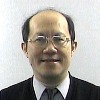Newly confirmed Premier Li Keqiang is a man in a big hurry. As the economic tsar of more than 1.3 billion people, the 57-year-old technocrat is tasked with liberalizing an economic structure that is still burdened with a huge state sector as well as heavy-handed government fiats, writes Willy Lam.
By early this year, there are signs that the Chinese economy has successfully weathered the doldrums caused by the dicey recovery in the United States and the European Union. Performance in the crucial export and domestic consumption sectors have been better than most Western economists expected.
However, Li, who is also a member of the Chinese Communist Party’s supreme ruling council – the Politburo Standing Committee – faces tremendous odds in his goal of rationalizing the economy through boosting market-oriented elements and curbing the monopolistic powers of state-owned enterprise conglomerates.
This is despite the fact that in terms of education and depth of knowledge of the global economy, Li is perhaps the best-qualified premier in recent Chinese history. The “Fifth-Generation” leader has a doctorate in economics from prestigious Peking University, in addition to being the only Politburo member who speaks English well.
One ingrained problem facing every Chinese head of the government is that he has much less power than prime ministers in most other countries. Firstly, the Chinese premier has direct oversight over only ministries and departments that are related to the economy. He has no control, for example, over the Ministry of Foreign Affairs, the police and state-security apparatus, or the propaganda-culture departments.
Equally crucial is the fact that the premier has limited personnel powers. The appointments of the premier’s deputies – as well as the heads of ministries and departments – are made by the CCP’s Organization Department, which is currently under the control of General Secretary Xi Jinping.
While the relationship between Li and Xi is said to be cordial, they come from different factions within the party. A long-time protégé of ex-president Hu Jintao’s, Li is a stalwart of Hu’s Communist Youth League (CYL) Faction. Xi, on the other hand, is a leader of the so-called Gang of Princelings, a reference to the offspring of party elders.
Moreover, the premier has no direct control over the 120 yangqi or SOE conglomerates, whose total assets are equivalent to some 60 percent of GDP. These behemoths enjoy monopolistic powers in sectors including oil and gas, banking and finance, transportation and aerospace.
In theory, all yangqi CEOs report to the State Assets Supervision and Administration Commission, which is a government ministry. In fact, 20 to 30 of the biggest yangqi, such as the three oil monopolies, function as semi-independent fiefdoms. Moreover, many of their top executives are powerful princelings.
That the political status of the SOE conglomerates has been raised was confirmed at the 18th CCP Congress last November, when an unprecedented six yangqi CEOs were made full members of the ruling Central Committee.
The existence of these powerful stakeholders has prevented the country’s private enterprises – many of which are deemed more flexible and innovative than SOEs – from entering a large number of lucrative sectors.
Moreover, yangqi are opposed to opening up areas including the financial services to the multinationals.
Thus whether Premier Li can materialize pledges made by predecessor Wen Jiabao about ensuring a level playing field for private as well as foreign enterprises is a big question.
Li may have bigger success streamlining the cumbersome central-government structure by slashing the current 27 ministries and ministerial-level units to under 20.
For example, the Railway Ministry, which has been criticized for being a “state within the state,” may be absorbed by the Ministry of Transport and Communications. The National Statistics Bureau will likely be subsumed under the National Development and Reform Commission. The Ministry of Agriculture, Ministry of Land and Resources and the State Forestry Administration may be combined to form a “super-ministry.” The Ministry of Education and the Ministry of Science and Technology may also be merged.
At the same time, the powers of several ministries may be boosted. Foremost is the Ministry of Environmental Protection, which is seen as lacking sufficient authority to punish industrial and other polluters at both the central and regional levels.
Given the intimate linkage in China between politics and economics, the extent to which a prime minister can effectuate changes in the economic structure depends on his political clout within the party-state apparatus.
One distinct advantage enjoyed by Li is that he is the highest-ranked member of the CYL Faction, which is arguably the largest clique in Chinese politics. The CYL Faction boasts an extensive network of provincial and municipal party secretaries, governors and mayors. Li may thus face less obstacles from regional “warlords” than ex-Premier Wen, who is perceived as the weakest premier since the end of the Cultural Revolution (1966-76).
Moreover, Li will be aided by two capable vice-premiers, Wang Yang and Ma Kai, who are both Politburo members. Wang, whose revealing nickname is “Young Marshal,” has a reputation of a reformer during his just-finished five-year stint as Party Secretary of Guangdong Province.
Political sources in Beijing say Wang will be in charge of economic reform. And given that Wang is also a rising star of the CYL Faction, Li and Wang could pool their resources to promote economic liberalization – as long as they can circumvent strong opposition from vested interests in the polity. ■
*Willy Lam is an Adjunct Professor at the Chinese University of Hong Kong and Select Professor of China Studies at Akita International University, Japan. Dr Lam specializes in areas relating to China’s economic and political reform as well as foreign policy and is currently writing a book on the new Chinese leader Xi Jinping.

















